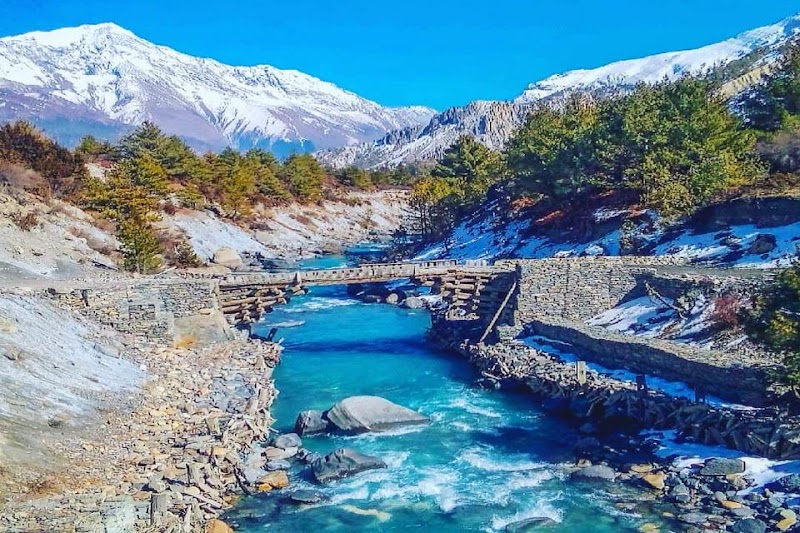
Annapurna Conservation Area Adventures
Spanning diverse ecosystems, the Annapurna Conservation Area is a premier destination for trekkers and nature enthusiasts, offering breathtaking vistas of the Himalayas.
About Annapurna Conservation Area

The Annapurna Conservation Area is the largest protected area in Nepal, covering approximately 7,629 square kilometers. It extends across the Annapurna Range, which includes some of the highest peaks in the world, such as Annapurna I at 8,091 meters. The area is rich in biodiversity, home to more than 100 species of mammals, over 400 species of birds, and a variety of reptiles and amphibians. Established in 1986, the conservation area integrates human settlements and community management into its preservation efforts. This region offers some of the world's most renowned trekking routes, such as the Annapurna Circuit and the Annapurna Base Camp trek. Trekkers and adventurers are drawn to its stunning landscapes, waterfalls, and vibrant rhododendron forests, alongside fascinating cultural encounters with local Gurung, Magar, and Thakali communities. Visitors can explore unique landforms like the Kali Gandaki Gorge, one of the deepest in the world, and enjoy the mesmerizing views of sacred peaks like Machapuchare.
Highlights
Thorong La Pass - a high-altitude pass offering panoramic views of the Himalayas
Breathtaking views of Annapurna I and Machapuchare
The cultural richness of villages like Manang and Jomsom
Kali Gandaki Gorge, the world's deepest gorge
Notable Natural Features
Annapurna Circuit
A classic trekking route encircling the Annapurna Range, known for its diverse landscapes and cultural experiences.
Poon Hill
A popular vantage point for sunrise views of the Annapurna and Dhaulagiri mountain ranges.
Annapurna Sanctuary
A high glacial basin offering captivating views of Annapurna South, Hiunchuli, and Machapuchare.
